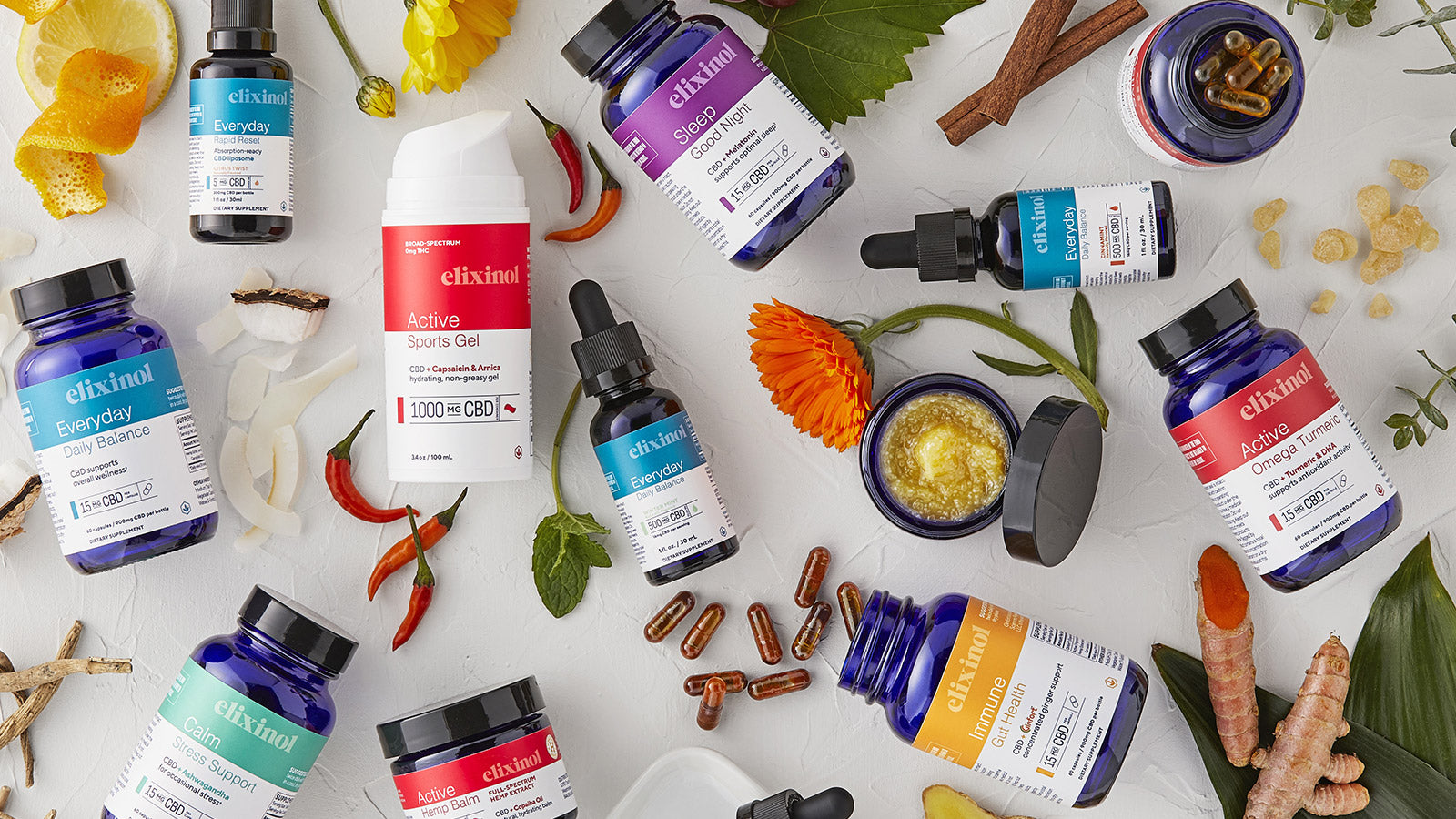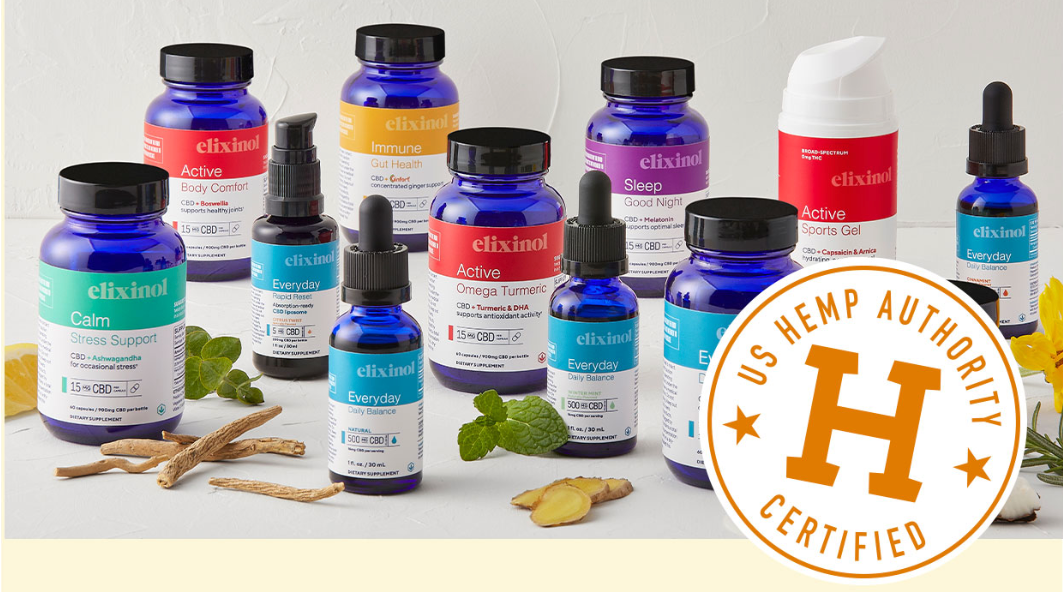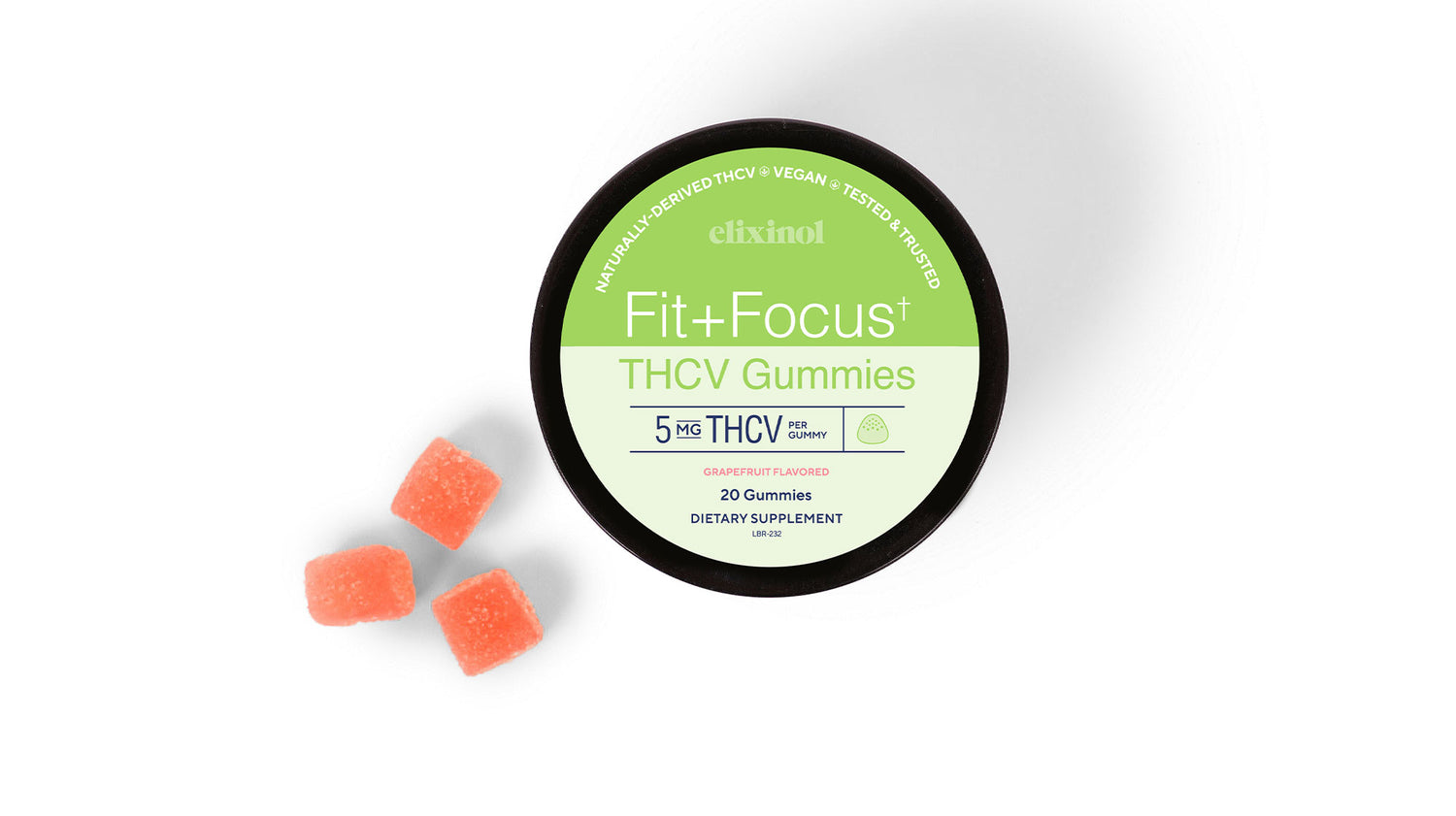Part of the beauty and wonder of CBD is that it’s not just one thing — whether you’re looking to de-stress, soothe sore joints, sleep better, boost your immunity, or moisturize a dry patch of skin, there is likely a CBD product that can help. In fact, scientific research shows that CBD offers such a wide variety of benefits that can help such a wide variety of people, the real challenge is narrowing down the choices to find the right match for you.
Today’s range of CBD products typically includes topicals (used externally), as well as capsules and oils (used internally). Learning the difference between these three types of CBD products—as well as the many different ways they can help the body and mind—can empower you in making the best decisions of how to incorporate CBD into your personal wellness plan.
This brief guide explores some of the key differences between CBD topicals, capsules and oils, and offers some helpful pointers on how to determine the right format for you.
What Are the Differences Between CBD Topicals, Capsules & Oils?
Part of the confusion around CBD comes from the way its portrayed as some kind of trendy cure-all that can treat, cure, or prevent any disease. While CBD products can be hugely helpful, they should not be intended to diagnose and treat a singular disease.
Remember that CBD is a plant-based extract with a vast potential of benefits, and so much depends on how and what is being used—as well as in what amount and what consistency. Part of CBD’s remarkable range of benefits is that CBD acts directly with the body’s natural endocannabinoid system, which regulates everything from our mood and our sleep to our immune response and the way we feel pain. As such, CBD can be used in many different ways with far-reaching responses.
It’s important to appreciate that CBD topicals, capsules and oils all engage the body’s endocannabinoid system, yet different products may target a particular aspect of the endocannabinoid system. For example, a CBD topical may be absorbed into the skin and the muscles beneath, offering a more localized result, while a dropper full of CBD oil taken sublingually may likely offer more full-body effects. Remember that choosing the right CBD product is a unique journey that depends largely on your own individual needs and personal wellness goals.
CBD Topicals
CBD topicals include any creams or lotions that are applied directly to the surface of the skin. Rubbing a CBD topical like Elixinol’s Sports Gel into the affected area not only provides relief to the top layers of skin, but also soothes and benefits the muscles and joints underneath the skin. The blended benefit of intensive moisturization while activating the sub-dermal endocannabinoid system for longer-term effects is part of what makes CBD so special.
Navigating the many topical CBD products can seem overwhelming at first, especially given the number of health claims made in today’s market. One of the first things to consider is which substance is being used as a base for the topical CBD. This could be any range of plant-based butters and oils, or even hemp-seed oil, which is sometimes added for its intensive moisturizing quality. Combining a natural moisturizer like hemp seed oil with the soothing anti-inflammatory qualities of CBD results in a product that offers multiple benefits at once.
Other CBD topicals can include salves and balms. While CBD can definitely help minimize the kind of pain and soreness that follows strenuous exercise and physical exertion, it works best as part of a long-term prevention and wellness plan.
Typically, regular users of CBD topicals fall into a few different categories: One group usually consists of athletes who are looking to support a strong natural recovery and soothe overworked limbs. Others use CBD topicals as a means to lessen the effects of aging, to promote resilient skin, and support joints. Others may be entirely focused on the long-term care of specific skin ailments, such as acne, while others find that CBD topicals can help them relax and sleep better due to the calming effects that are manifested both mentally and physically. Some of the latest studies show CBD topicals can help reduce neuropathic symptoms such as coldness, itchiness, and discomfort in the extremities.
Bear in mind that CBD topicals carry practically no side effects, and are thereby considered safe for general external use. When considering applying CBD to the skin, read the label carefully to know exactly what ingredients and additives are contained in the product.
CBD Capsules
CBD capsules are shaped like pills and contain CBD inside, typically an encapsulated liquid. Capsules are ideal for those who are unsure about the correct serving size of CBD they are ingesting since capsules are designed to hold a very exact amount of CBD.
Ingesting specific amounts of CBD allows the CBD access to the bloodstream, which in turn, activates the endocannabinoid system. CBD capsules are used to assist with a better night sleep, to serve as a calming influence, to improve digestive health, to support stronger immunity, and to support an all-body recovery for those with strenuous and physically-demanding lifestyles.
CBD Oils
When people talk about “CBD oil” they are usually talking about pure CBD that is added to a carrier oil, such as coconut, MCT or hemp seed oil (though some CBD tinctures may also be alcohol-based). CBD oils are often employed as part of a daily health regimen to help regulate the body and mind, to foster deeper relaxation, and to provide an overall sense of calm and well-being.
But CBD oils can offer even broader benefits for those dealing with more serious issues, including assisting in soothing discomfort or supporting better neurological regulation. Many take CBD oil to help improve a depressed mood or to quiet anxious thinking, while others use CBD oil to specifically relieve sore joints and address the kind of natural long-term physical stress that comes with aging.
What You Should Know about CBD Topicals, Capsules and Oils
CBD is legal in the United States. Hemp-based products, including CBD topicals, capsules and oils, are allowed by federal legislation, as long as these products are made with pure hemp-plant extract and contain less than 0.3% THC. When researching CBD products of any kind, it’s imperative that the ingredients are listed on the label, and that the product is independently lab tested to verify the contents inside.
Researching different products, knowing their ingredients, verifying their third-party testing, and discovering what gives you the best outcome should all be factors you consider in choosing a CBD product. Remember that what works for one person may not be right for you—for example, if a friend is using a CBD lotion on a patch of dry skin and getting great results, you may find that taking a dropper full of CBD oil twice daily helps you achieve better skin wellness.
What’s also important to remember is that CBD is an effective and remarkable plant extract that can help you in so many ways. Taking the time to research the different kinds of CBD products (i.e. topicals, capsules, and oils) will assist you in making wise and informed decisions about your own health and wellness regimen.




